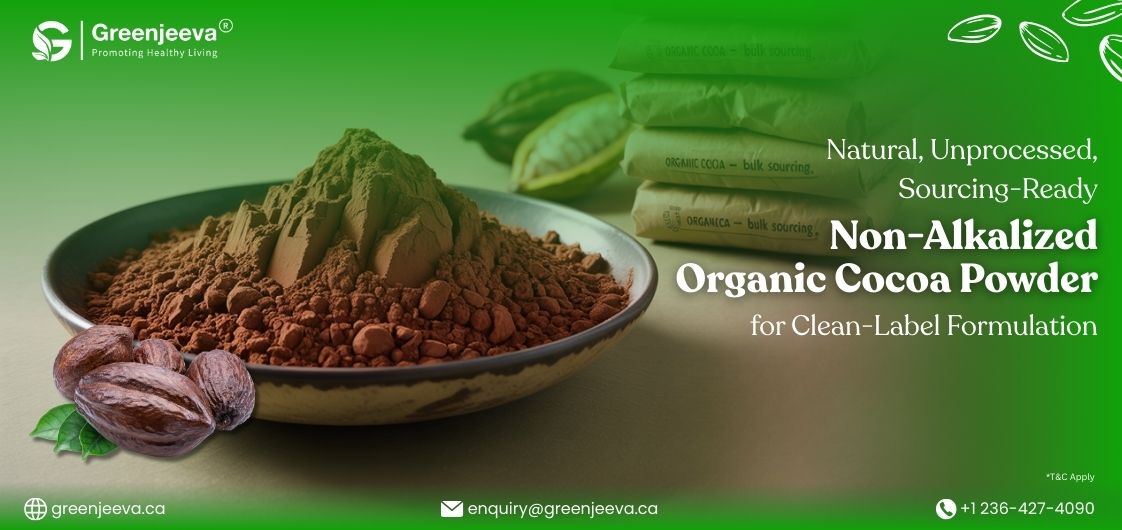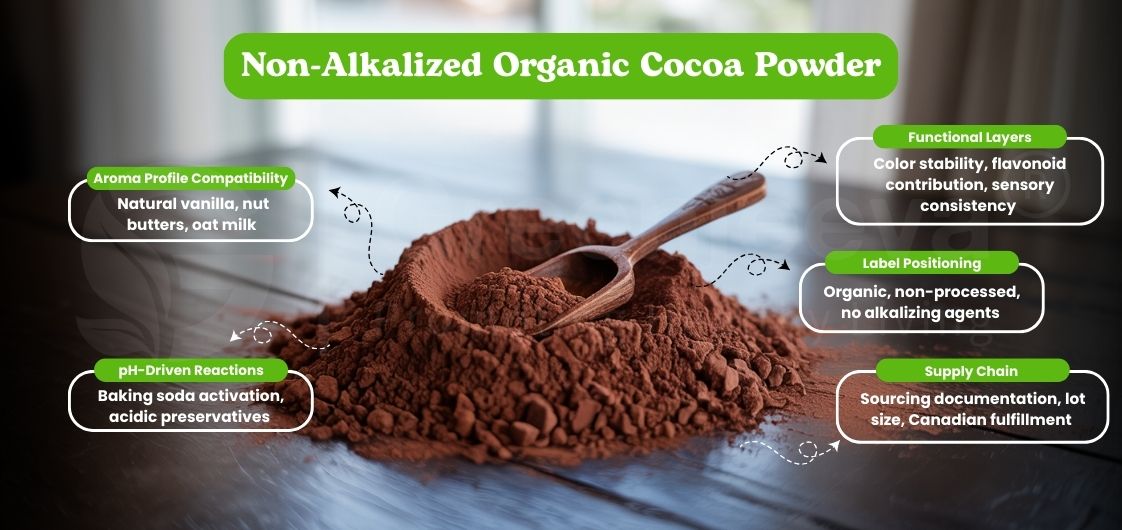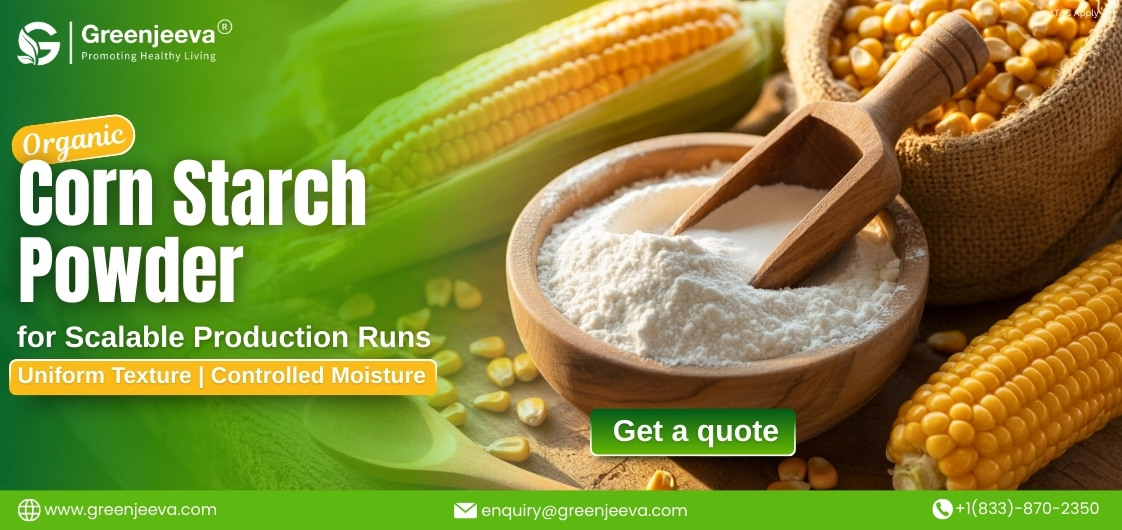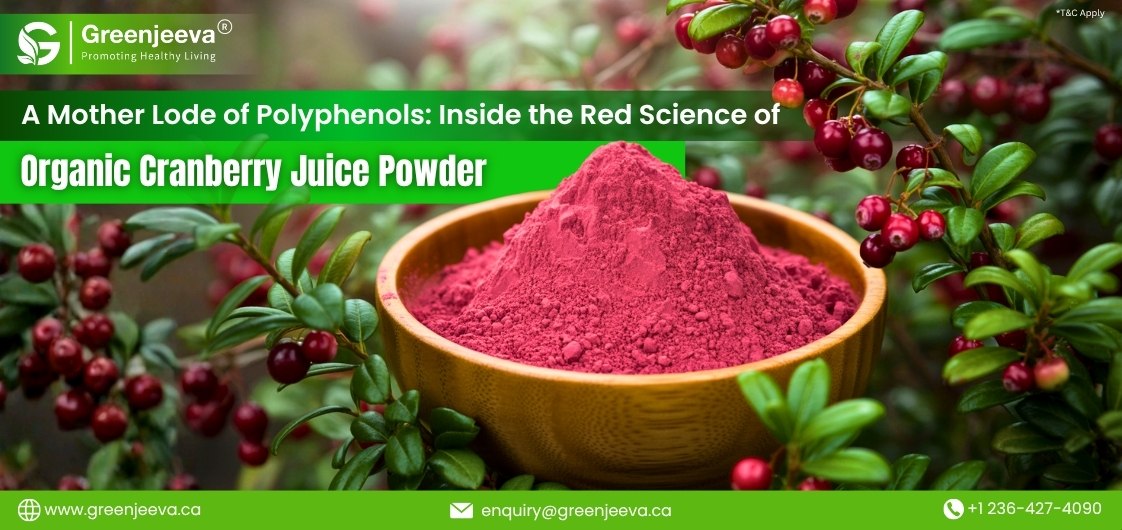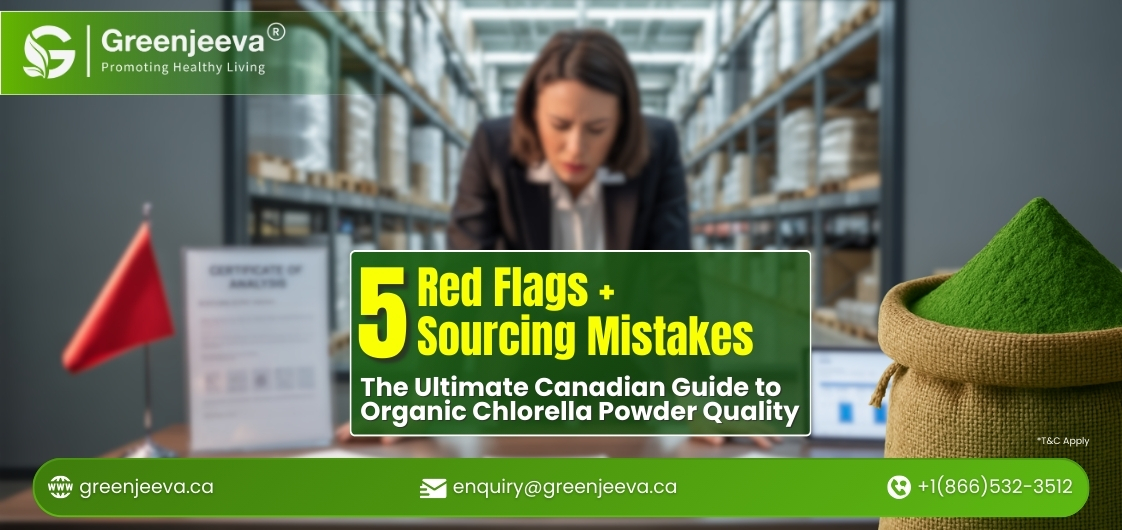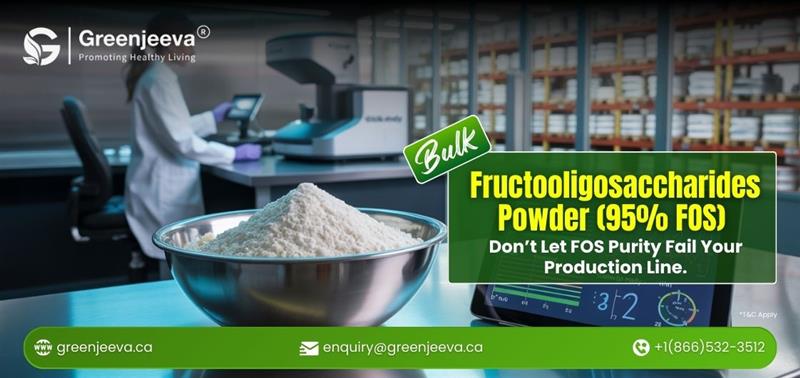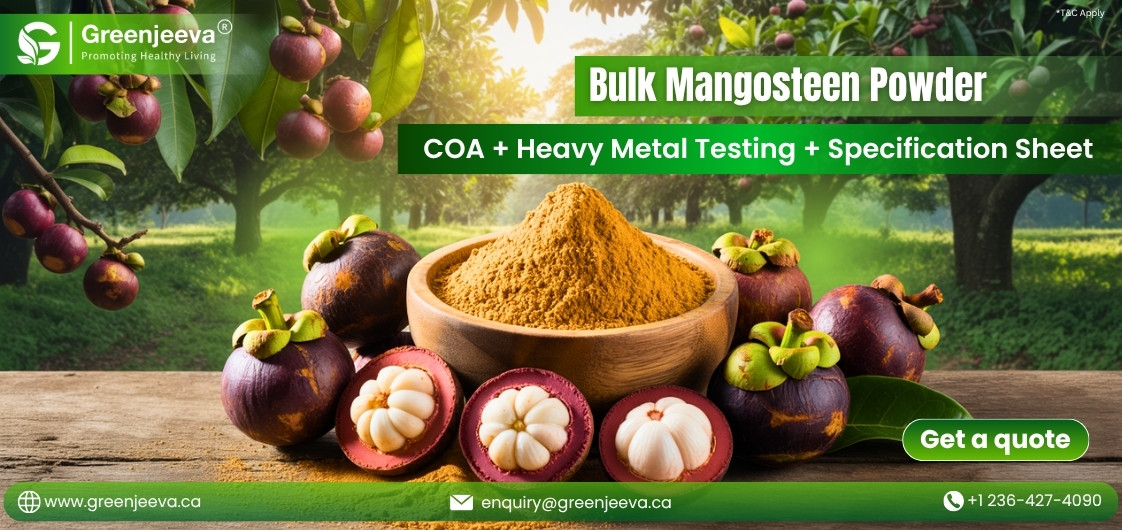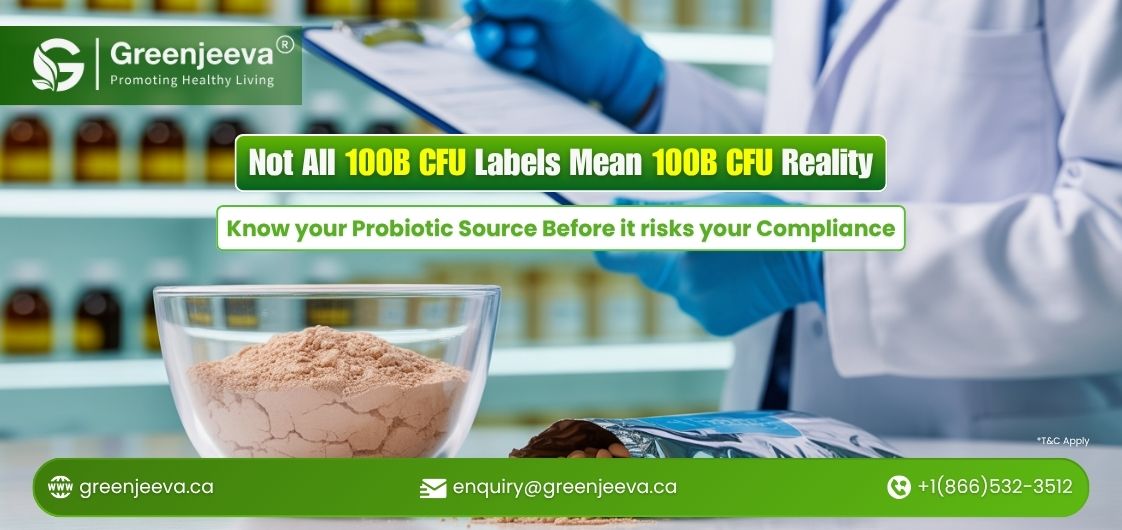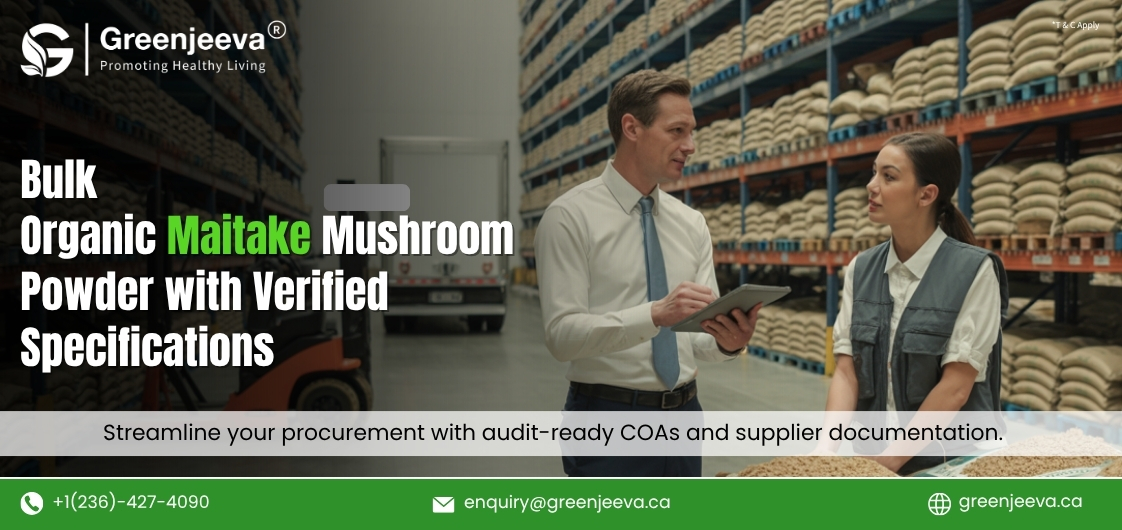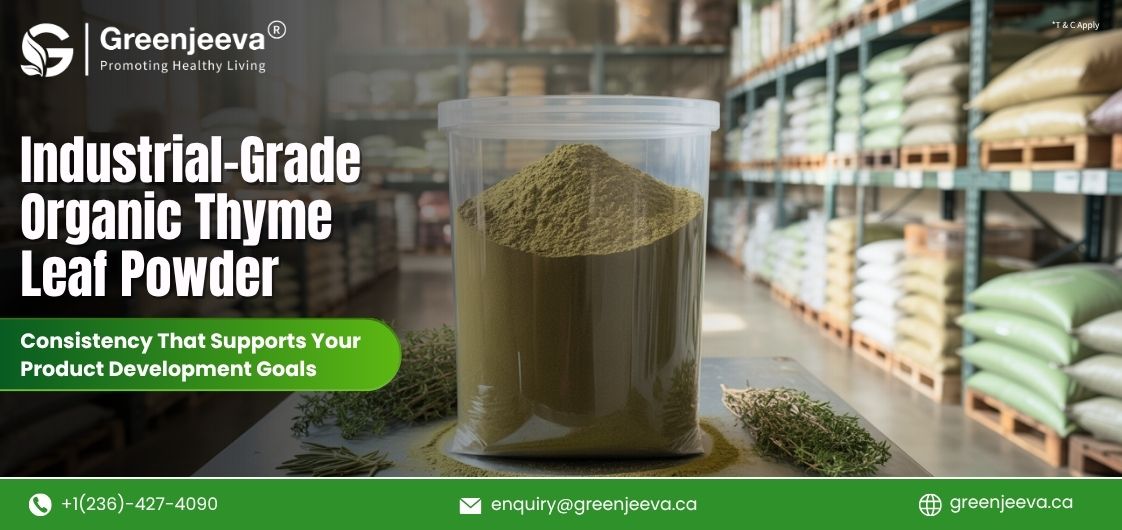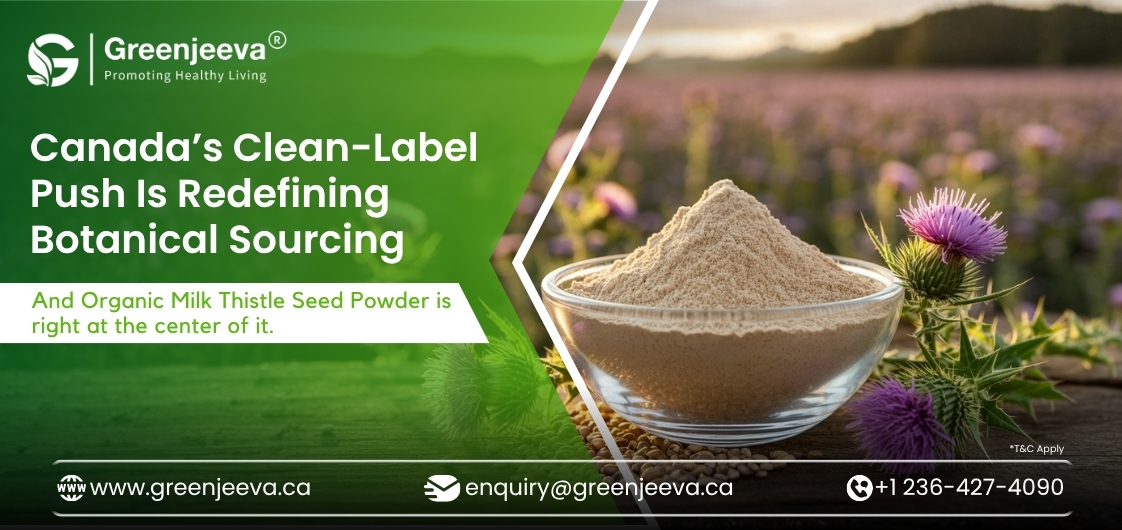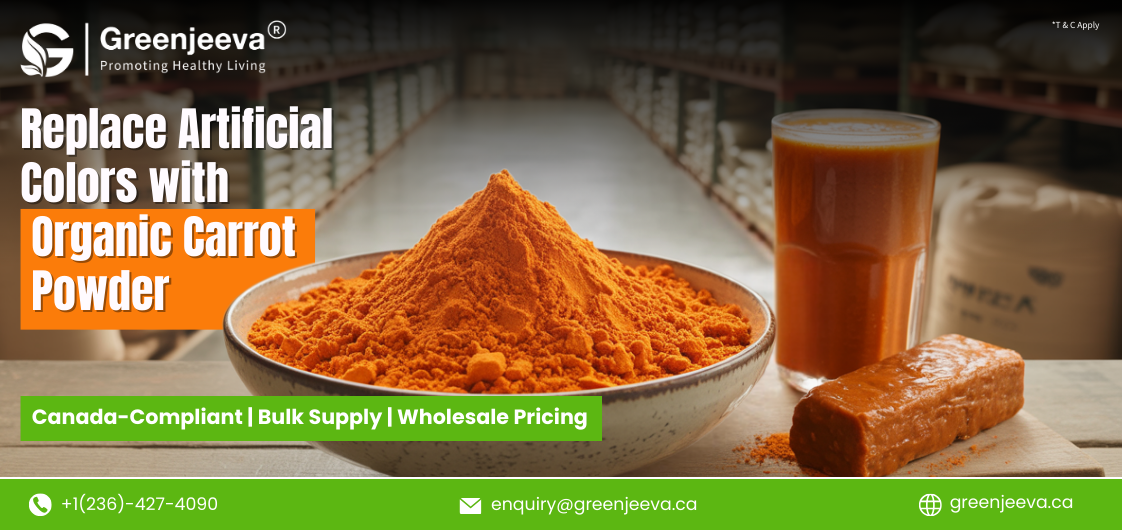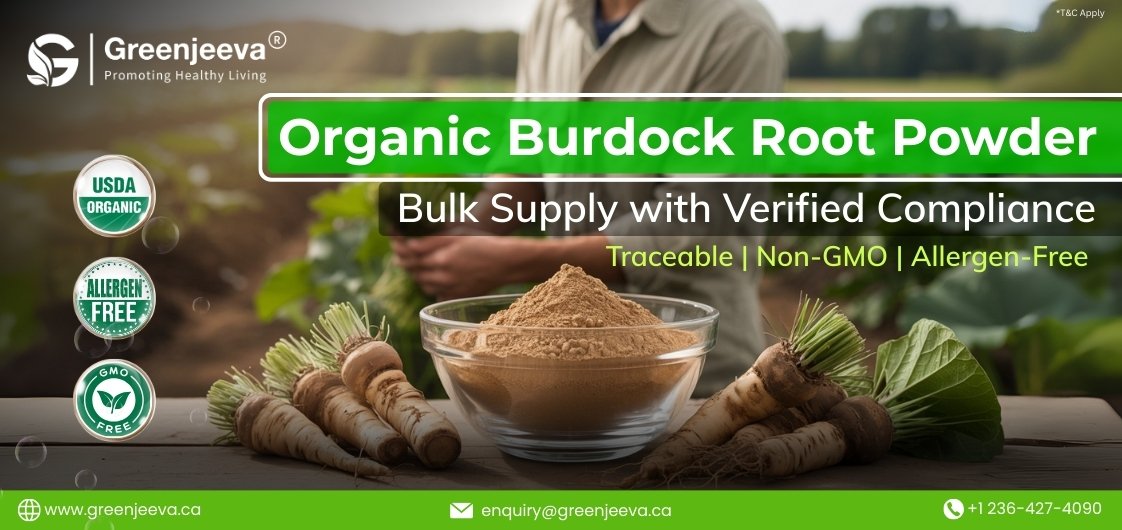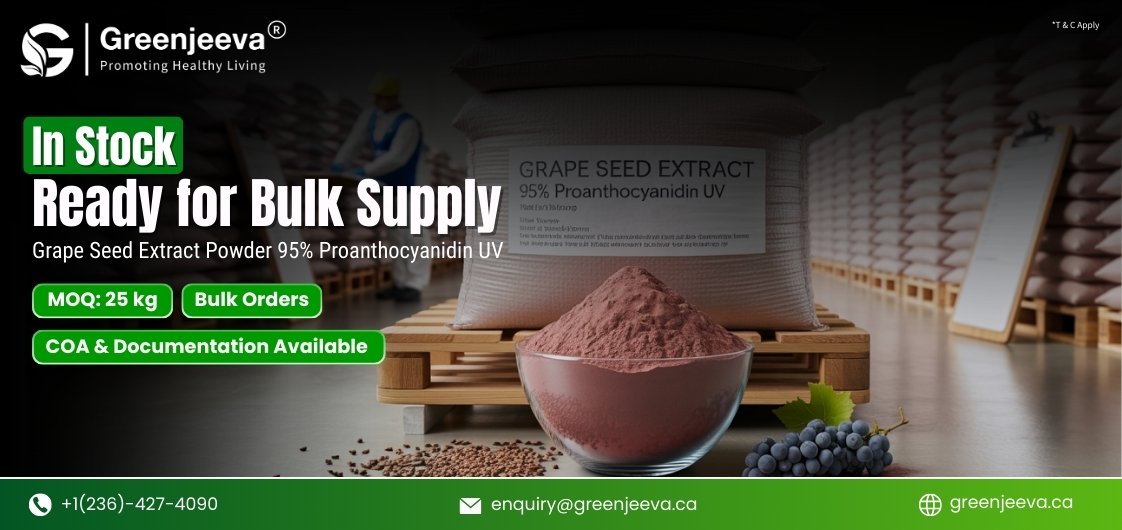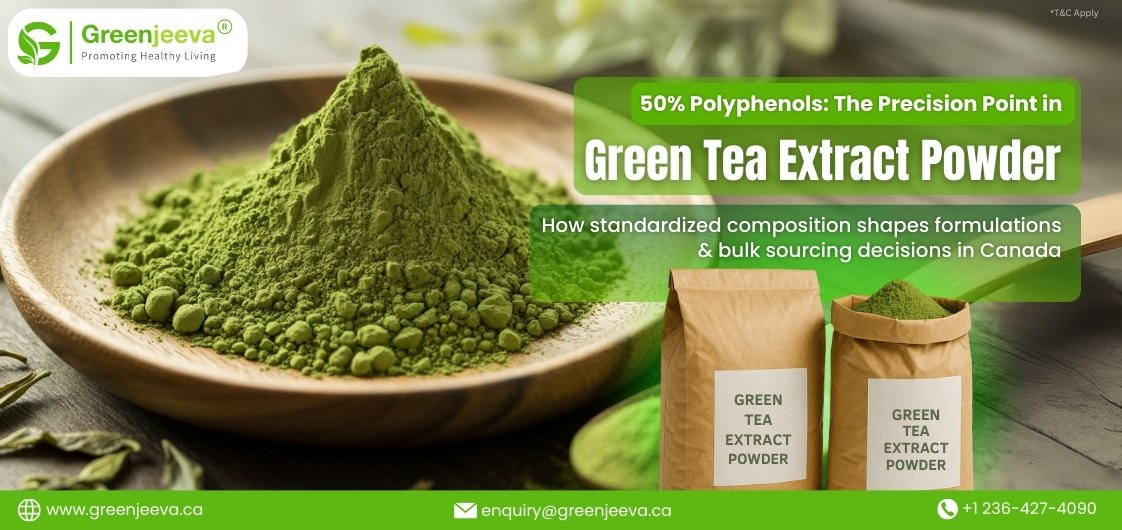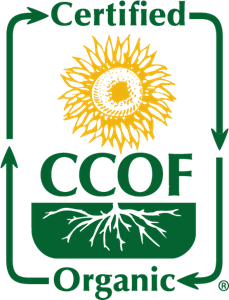Product decisions aren’t just about flavor; they’re about functionality, compliance, and how every ingredient affects the entire formulation pipeline. For sourcing heads, R&D teams, and formulation leads, non-alkalized organic cocoa powder is a high-impact input that can make or break clean-label claims, leavening systems, or even batch consistency.
And yet, it’s still one of the most misunderstood ingredients on spec sheets.
This blog cuts through the noise. Whether you’re sourcing in bulk, refining a label-friendly chocolate blend, or troubleshooting pH compatibility in bakery systems, we’ll walk you through how organic cocoa powder, non-alkalized, performs where it matters, and what top sourcing teams look for before placing a PO.
If cocoa is part of your product architecture, this is five minutes well spent.
What Is Non-Alkalized Organic Cocoa Powder Used For?
Non-alkalized organic cocoa powder is used in clean-label food and beverage formulations where natural flavor, color, and acidity matter.
It is finely ground cacao that hasn’t undergone the Dutch process. This means it retains its natural acidity (pH around 5.0–6.0), color, and cocoa flavonoid content—making it a preferred ingredient in many industrial applications.
Key applications in the food and beverage industry include:
– Chocolate-flavored bakery mixes and cakes
– Clean-label dairy and plant-based beverages
– Protein bars and nutritional powders
– Vegan confections and spreads
– Seasoning blends where flavor depth and natural cocoa aroma are essential
These use cases make it a common choice for R&D teams focused on natural and functional chocolate ingredients.
Is Natural Cocoa Powder Better for Food and Beverage Products?
Natural (non-alkalized) cocoa powder is preferred for its high cocoa flavonoids, acid profile for leavening, and clean-label compatibility.
Compared to alkalized cocoa, non-alkalized cocoa powder retains higher levels of flavonoids in formulation. These naturally occurring compounds support product positioning in functional applications. It also contributes to better leavening in baking formulations due to its low pH.
Why manufacturers prefer non-alkalized options:
– Better retention of cocoa flavonoids in formulation
– Compatible with baking soda in acid-based leavening systems
– Preserves the stable color and flavor in natural cocoa powder applications
– Supports a clean-label chocolate flavor base
When selecting cocoa for clean-label innovation, formulator-friendly cocoa ingredients like this help deliver on both performance and label transparency.
What’s the Difference Between Non-Alkalized and Alkalized Cocoa?
Non-alkalized cocoa retains its natural acidity and nutritional compounds, while alkalized cocoa is treated to neutralize pH and darken color.
Understanding the processing difference is key to making the right sourcing decision:
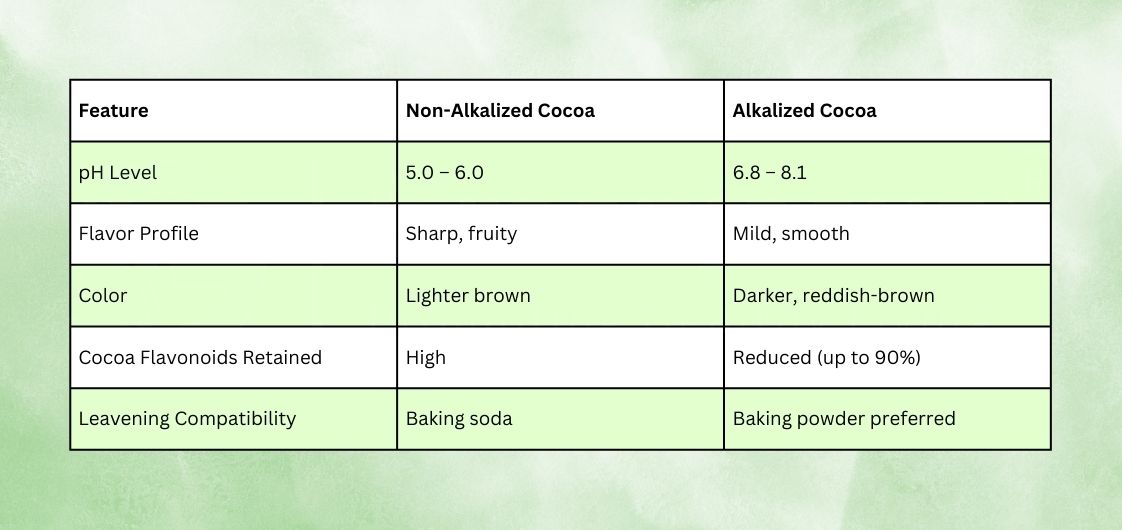
Non-alkalized cocoa powder offers a sharper flavor, lighter color, and better flavonoid retention—making it ideal for baking soda-based systems. In contrast, alkalized cocoa delivers smoother taste but sacrifices natural acidity and antioxidant content.
This makes non-alkalized cocoa powder for food formulation a more versatile and value-driven option in many applications.
How Do Manufacturers Evaluate Cocoa Powder Quality?
Sourcing teams assess cocoa powder based on pH, microbial load, flavonoid profile, certifications, and consistency in sensory attributes.
For sourcing heads and procurement teams, buying food-grade cocoa powder wholesale means evaluating both technical and supply-side parameters:
Key sourcing criteria include:
– Non-alkalized cocoa powder pH for leavening systems
– Microbial safety and low moisture content (<10%)
– Consistent particle size and natural aroma
– Certifications: COR Organic, Kosher, Halal, Non-GMO, etc.
– Traceable origin and ethical sourcing
These parameters also ensure alignment with regulatory requirements in Canada and product performance benchmarks across batches.
What to Look for When Sourcing Cocoa Powder in Bulk?
Bulk cocoa buyers prioritize reliable supply chains, technical documents, and compliance with clean-label standards.
If you’re looking for a bulk organic cocoa powder supplier in Canada, here are the essentials to evaluate:
Checklist for procurement teams:
– COR and USDA organic certified non-alkalized cocoa powder
– Flexible lot sizes for medium- to large-scale production
– Documentation: COA, microbial tests, heavy metal screening, allergen statements, etc.
– Canada-specific fulfillment and warehousing options
– Supplier transparency, product- and batch-level traceability
Choosing a trusted partner also ensures alignment with Canadian wholesale ingredient sourcing priorities and helps reduce formulation risk.
Where Does Non-Alkalized Cocoa Powder Fit in Functional Product Formulation?
Its stable flavor, low pH, and antioxidant-rich content make it ideal for functional, high-performance chocolate-based products.
Today’s clean-label and functional food innovation pipelines often rely on ingredients that provide more than taste. Non-alkalized cocoa delivers consistent performance and label-friendly appeal.
Use in R&D and formulation includes:
- Clean-label chocolate flavor base in plant-based formulas
- Functional chocolate ingredients for high-protein snacks
- Cocoa powder for R&D and product development in low-pH systems
- Cocoa flavonoids in formulation for better shelf stability
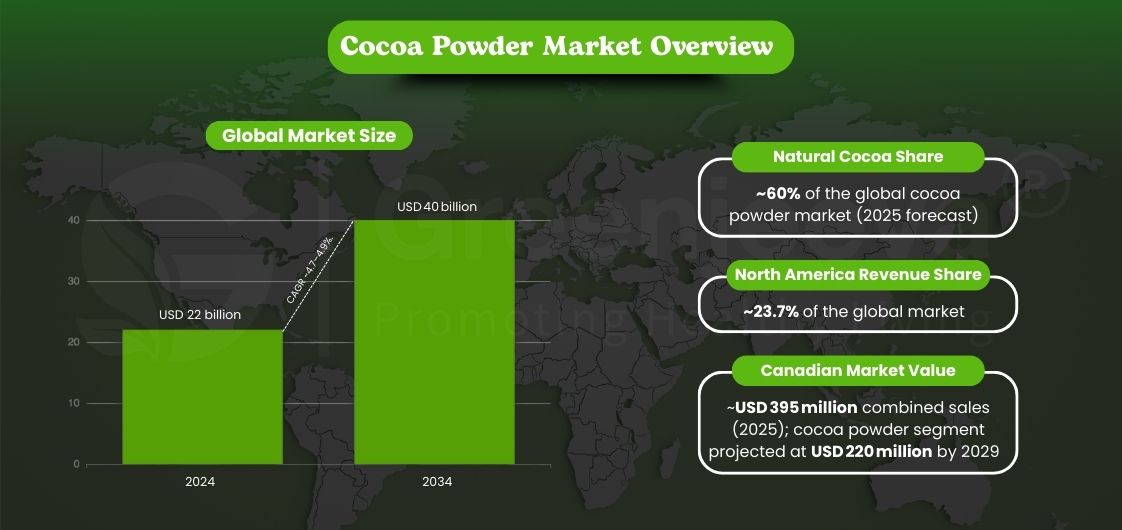
As formulator-friendly cocoa ingredients gain traction, sourcing teams are aligning with suppliers that can provide technical consistency and document-backed quality.
Final Thoughts
Whether you’re sourcing for beverages, nutrition bars, baked products, or plant-based systems, this ingredient offers reliable performance in high-demand product segments. Its compatibility with baking systems, stable flavor, and cocoa flavonoids make it a key choice in future-forward formulation.
For sourcing teams in Canada, choosing the right supplier matters.
Work With a Supplier You Can Trust
Green Jeeva Canada is a reliable bulk ingredients supplier offering food-grade cocoa powder wholesale to manufacturers across Canada. We provide documentation, sample, logistic support, and flexible order volumes tailored to your formulation needs.
Contact us to request a sample or get specifications.
Disclaimer:
This blog is intended for informational and educational purposes only. It does not make medical claims or provide therapeutic recommendations. Always consult with regulatory teams before finalizing ingredient decisions.


